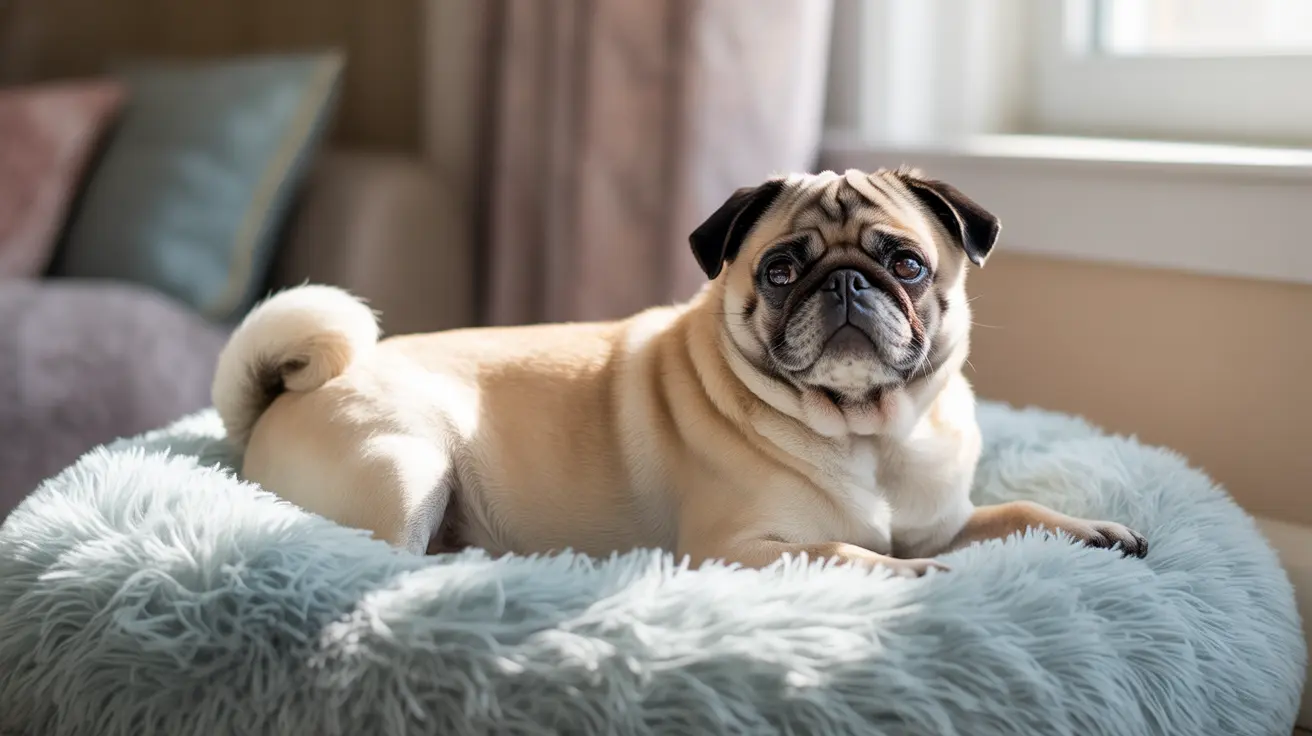Many pet owners become concerned when they notice their dog's nose dry instead of its usual wet, cool state. While a moist nose is often associated with good health in dogs, the reality is more complex. Understanding when a dry nose is normal and when it might signal a health issue is crucial for every dog owner.
In this comprehensive guide, we'll explore the various causes of dry noses in dogs, help you distinguish between normal and concerning symptoms, and provide practical solutions for maintaining your pet's nasal health.
Normal Causes of a Dry Dog Nose
Post-Sleep Dryness
It's perfectly normal for your dog's nose to become dry during sleep. Dogs don't lick their noses while sleeping, which temporarily interrupts the natural moistening process. This dryness typically resolves shortly after waking as they resume normal activities.
Environmental Factors
Weather conditions and indoor environments can significantly affect your dog's nose moisture. Exposure to heating systems, air conditioning, or dry climates can lead to temporary nasal dryness that usually isn't cause for concern.
When to Be Concerned About a Dry Nose
Signs of Dehydration
A dry nose accompanied by lethargy, sunken eyes, or decreased skin elasticity may indicate dehydration. This condition requires immediate attention, especially if your dog shows reduced interest in drinking or eating.
Medical Conditions
Persistent nose dryness, particularly when accompanied by crusting, bleeding, or color changes, might signal underlying health issues such as:
- Autoimmune conditions
- Allergies
- Infections
- Systemic illnesses
Prevention and Care Tips
Maintaining Proper Hydration
Ensure your dog always has access to fresh, clean water. Consider placing multiple water bowls throughout your home, especially in warm weather or if you have a large living space.
Protection from Elements
Apply dog-safe sunscreen to light-colored or pink noses when spending time outdoors. Keep your pet away from direct heating vents and provide adequate shelter from harsh weather conditions.
Regular Monitoring
Check your dog's nose regularly for changes in texture, color, or moisture level. This helps establish what's normal for your pet and makes it easier to spot concerning changes.
Breed-Specific Considerations
Some dog breeds, particularly brachycephalic breeds like Pugs and Bulldogs, are more prone to dry noses due to their facial structure. These breeds may require extra attention and care to maintain proper nasal moisture.
Frequently Asked Questions
Why does my dog's nose get dry after sleeping, and is this a cause for concern?
A dry nose after sleeping is normal and occurs because dogs don't lick their noses during sleep. The moisture typically returns shortly after waking and resuming normal activities.
How can I prevent my dog's nose from getting dry due to dehydration or sunburn?
Ensure constant access to fresh water, provide shade during outdoor activities, and use pet-safe sunscreen on light-colored noses. Monitor water intake, especially during hot weather or increased activity.
What are some common health issues that can cause a dog's nose to become persistently dry?
Common health issues include autoimmune conditions, allergies, infections, and systemic illnesses. Persistent dryness accompanied by other symptoms should be evaluated by a veterinarian.
How can I differentiate between a normal dry dog nose and one that signals a health problem?
Normal dryness is temporary and occurs without other symptoms. Concerning dryness persists, may include crusting or bleeding, and is often accompanied by additional symptoms like lethargy or changes in behavior.
What are the best ways to keep my dog's nose moist and healthy, especially in harsh weather conditions?
Use pet-safe nose balms, maintain proper hydration, protect from extreme weather, and ensure adequate humidity levels indoors. Consider using a humidifier in dry environments.
Conclusion
While a dog's nose dry condition can be concerning for pet owners, understanding the context and accompanying symptoms is crucial for proper care. Most cases of dry nose are temporary and harmless, but knowing when to seek veterinary attention ensures your pet's health and well-being.






